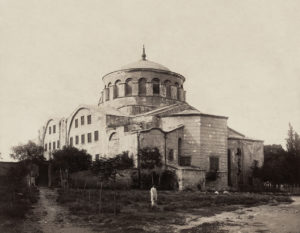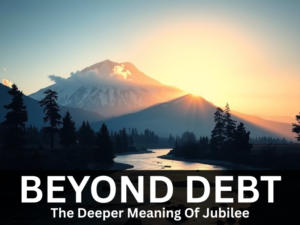Spirited Reflection: Wandering from post to post

Reflective people question everything. It came as no surprise when I set out to examine my theological assumptions. I am not sure if it was inspired by Phyllis Tickle’s idea that every five hundred years or so the church has a huge rummage sale and throws some stuff out, but I like the sound of the possibility that the church might be reflective and intentional about its theological direction. The Church is people, so being one of those people, I have been compelled for most of my ministry, to take the teaching language of Jesus, ‘you have heard it said …, but I say to you …’ to research, reflect and discern what God may be saying to me today.
One thing that has always made me uncomfortable is the Constantinian transformation of Christianity from an anti-empire, religious movement into the Empire sustaining and expanding religion. We cannot change the past but we can learn from it and shape a different future. I have wondered many times what a post-Constantinian Christianity could look like?
I realize many have heralded Constantine’s endorsement to be essential to the success of Christianity. However, the nature and legacy of that success is mixed. The Church’s complicity in enabling structures that have increased human displacement and poverty, fanned the flames of racism, greed and power mongering and helped to justify privilege thereby enabling injustice shows there is much that needs to change to be the Church that Christ intended and invited us to be. The Church knows its past. It has apologized for some and refused to apologize for others. I do not judge the past, I am not proud of some of its fruits and I am deeply concerned about its future.
Redeeming institutions
I am comforted by the work of Walter Wink who taught that, as individuals can fall and be redeemed, so may institutions. The apple of Empire has caused the Church to fall and that Constantinian serpent knew what the Church wanted to hear. I am not unaware of the fact that many, through the past seventeen hundred years, saw and expressed the same thoughts. It is because of my forebears in the faith that I think as I do. I now try to discern the Spirit’s movement to heal the Church and reveal its vision for who and what the Church can be.
Further reflection and research on what a post-Constantinian Church might look like forced me to face the influence Empire had on colonialism. The immense wealth that was created from free (stolen) land and forced slave labour was endorsed and blessed by the Church. The Church’s Constantinian roots fed it with the desire to civilize all people (as they understood civilization) and to coerce them to be Christian. Civilizing, for their own good, in the name of Jesus justified many inhuman and dehumanizing practices. The post-Constantinian Church would also have to be a post-colonial Church.
Consolation of what good the Church has done in the past cannot exonerate it or reduce our awareness of its need for repentance. It would be false and arrogant to suggest that the Church is not in need of repentance! All of us who make up the Church stand in need of constant reminder of where the Church needs improvement, renewal, reform – or a good rummage sale to clear out the stale remains of bygone empires and colonial practices. We need to pray for the eyes and ears of faith to see the possibility of what the Church could be from God’s point of view and to hear the cries of those our words and practices have dehumanized or made to feel less than human.
Through the incarnation, God revealed a plan and purpose for humanity. No amount of power, influence or wealth should have enabled us to alter that purpose and plan. Even the economic structure the Church helped to build, which ironically dehumanizes and even removes the need for humanity all together, needs to repent.
The post-Constantinian, post-Colonial Church (post-c2) I imagine ceases and refuses to encourage thoughts or participate in practices that dehumanize people or favour one group, one culture, one way of living over another. Exploration of that new mind (metanoia) would be part of the post-c2 Church. It may start to sound like the yearning for another utopian dream, to see the world differently. That yearning arises, gasping for expression from deep within trying to find the words. Not everyone will agree. Some will wonder why such thought energy should be wasted. Many seem content. It is a fine line between being grateful for the life and opportunities God gives us but understanding that in that life and opportunity there is also an invitation to make things better. The way forward can feel uncertain. However, I am confident that a new vision of the Church will arrive through this post reflection. While this may be the only world we have it is far from being the best world we could have.
Rev. Mark A. Tremblay is the minister of Knox Presbyterian Church in Calgary. He emphasizes a relational understanding of faith and spirituality; and is researching how our theology has supported of the Doctrine of Discovery to understand what needs to be repudiated.












